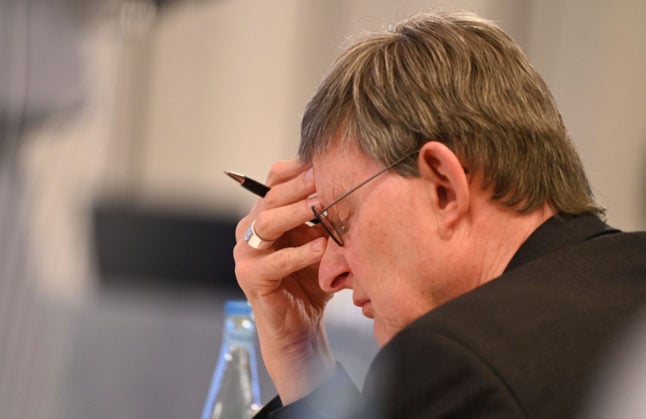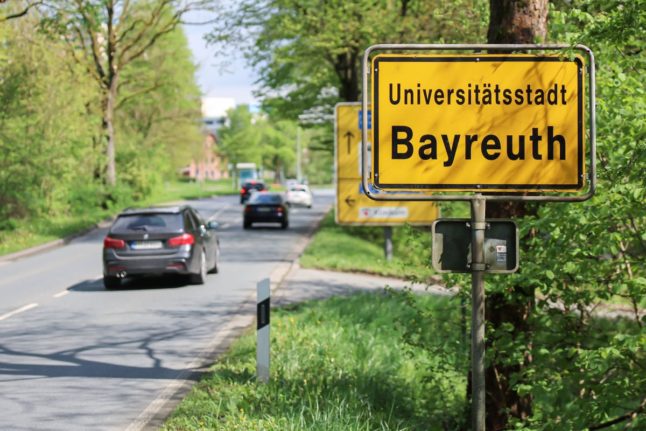The long-awaited 800-page report on the Cologne diocese found 202 perpetrators of sexual assault and 314 victims between 1975 and 2018, most of them under the age of 14, the attorney mandated by the Church, Björn Gercke, told reporters.
“More than half of the victims were children under the age of 14,” Gercke said.
However the investigation cleared Cologne’s Archbishop Rainer Maria Woelki, a conservative who has long resisted Church reform efforts, of “breach of duty” regarding abuse within the Church.
Woelki had faced a months-long firestorm of protest for refusing to allow the publication of an earlier study on abuse committed by priests in his diocese.
READ ALSO: Tensions mount in Catholic Church over abuse report
He had justified his decision by citing a right to privacy of the alleged perpetrators accused in the report, carried out by a Munich law firm, and what he called a lack of independence on the part of some researchers.
His approach was branded “a disaster” as recently as late February by Georg Bätzing, president of the German bishops’ conference, in a blistering public statement.
Woelki said in early March he would immediately “temporarily suspend, if necessary, people cited in the report” before taking more concrete measures to address its findings next week.
And he expressed willingness to throw his weight behind an honest accounting of crimes committed within the Church. “Only the truth can set us free from the shadows of the past,” he said.
Woelki was due to make a statement later Thursday.
‘Disrupting’ reform
A study commissioned by the German Bishops’ Conference and released in 2018 showed that 1,670 clergymen had committed some type of sexual attack against 3,677 minors, mostly boys, between 1946 and 2014.
However its authors said the actual number of victims was almost certainly much higher.
The revelations, which mirror paedophile scandals in countries including Australia, Chile, France, Ireland and the United States, prompted Cardinal Reinhard Marx, a prominent reformer, to apologise on behalf of the German Catholic Church.
The Church currently pays victims an average of €5,000 “in recognition of their suffering”, as well as covering their therapy fees.
Victims have called the sum woefully insufficient.
READ ALSO: ‘We will continue to fight’: German church abuse victims say payments not enough
Meanwhile each diocese in Germany has ordered a separate local investigation into abuse among its ranks.
The scandal in Cologne has sapped energy from efforts to spearhead broader reforms at a time when the Church is losing members, who in Germany pay a tax that goes toward church activities including charity work.
Germany’s Catholic Church, the country’s largest, counted 22.6 million members in 2019, two million fewer than in 2010 when the first major wave of paedophile abuse cases came to light.
Among the reforms on the table, in the face of opposition from Woelki and the pope, are a reevaluation of celibacy in the clergy, married priests and a greater role for laypeople and women in the Church.
In a setback for members calling for greater openness, the Vatican on Monday said the Church does not have the power to bless same-sex unions, declaring it was impossible for God to “bless sin”.
That reaffirmation of a harder line is no accident, said Thomas Sternberg, president of the influential Central Committee of German Catholics, calling it a way for Rome to “disrupt” the German reform drive.



 Please whitelist us to continue reading.
Please whitelist us to continue reading.
Member comments